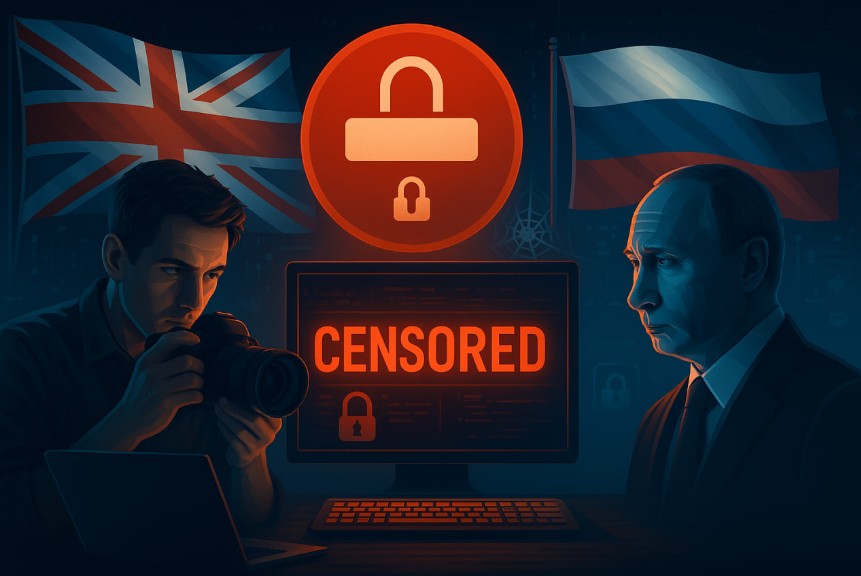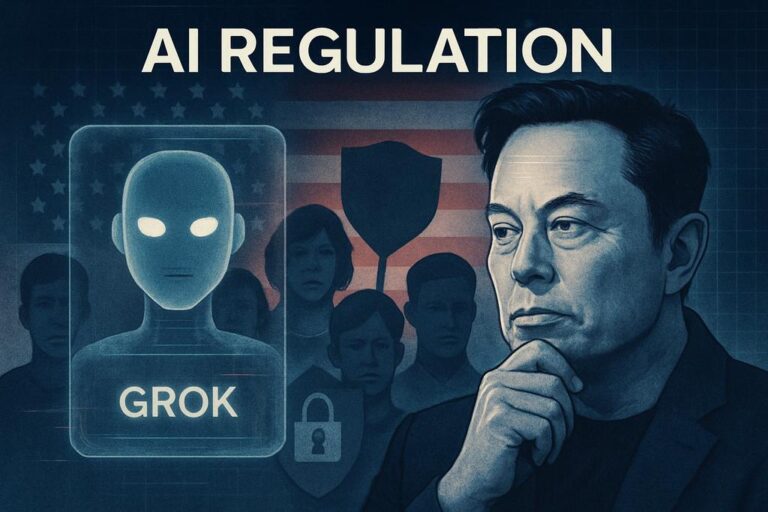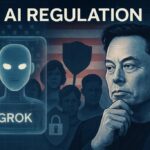
In July 2025, the United Kingdom implemented one of the world’s strictest internet censorship laws. Now, to access “18+” content, Britons must present their passport or take a selfie. Russia has been applying strict control measures for many years, gradually turning Runet into an isolated segment of the global network. Both states act under the banner of child protection, but experts warn: such laws create infrastructure for total surveillance of all users.
British Revolution: From Checkbox to Passport
The Law That Changed the Internet
July 25, 2025, became a turning point for the British internet. On this day, the comprehensive Online Safety Act came into force, adopted by parliament after several years of heated debates. The document fundamentally changed the rules of the game for all internet platforms operating in the United Kingdom.
The essence of the innovations is both simple and radical: all websites and applications with “18+” content are now required to implement a strict age verification system for users. The era of simple questions “Are you 18?” with a checkbox for confirmation has definitively become a thing of the past.
Verification Technologies: From Selfies to Biometrics
The new law provides several methods for age confirmation, each requiring users to disclose personal data:
Biometric verification — automatic age assessment through selfies using neural networks. Algorithms analyze facial features and determine the approximate age of the user.
Documentary confirmation — uploading a photo of a passport, driver’s license, or other identity document with subsequent comparison to a selfie.
Banking verification — checking passport data through a bank card or mobile operator system, where age has already been confirmed when registering for services.
For pornographic sites, these requirements became particularly painful. The largest adult industry resources were forced to urgently implement new user identification systems.
Not Just Porn: Social Networks and Games Under Scrutiny
However, the law’s scope extends far beyond pornographic resources. Regular social networks and search engines also fell under the new requirements. They are required to protect minors from a wide range of potentially harmful content: suicide propaganda, self-harm, eating disorders, extremist materials.
The British regulator Ofcom is authorized to control law enforcement — an organization that has received unprecedented powers in the field of internet regulation.
Ofcom’s Powers:
•Fines up to £18 million or 10% of the company’s global turnover
•Right to seek court orders to block resources in the UK
•Ability to bring IT company executives to criminal responsibility (up to 2 years in prison)
These sanctions became a powerful lever of pressure on international technology corporations, forcing them to seriously reconsider their approaches to working with British audiences.
Society Divided: Child Protection vs. Freedom of Speech
Parents For, Activists Against
The new measures split British society into two irreconcilable camps. The front line runs between those who prioritize child safety and those who fear for the future of digital freedoms.
Supporters of the law rely on alarming statistics: according to research, about 8% of children aged 8-14 in Britain visited pornographic sites within a month. For many parents, these figures became a convincing argument in favor of strict control measures.
“Think of the children” — this slogan became the main argument of law supporters. The government repeatedly emphasized: “the priority is child protection,” and does not intend to retreat from the adopted measures.
Protest Petition: 400 Thousand Against Censorship
However, a significant part of British society perceived the innovations as a threat to fundamental freedoms. Already in the first days after the law came into force, a petition demanding the repeal of the Online Safety Act gathered more than 400 thousand signatures — enough for mandatory consideration in parliament.
The petition’s author, Londoner Alex Baynam, did not mince words, calling the law “overly broad and restrictive for a free society.” He called for creating more thoughtful regulation instead that would not turn the internet into a space of total control.
Privacy Risks: From Leaks to Surveillance
Critics of the law point to serious risks associated with mass collection of personal data. Cybersecurity experts warn: widespread collection of document copies and biometric data creates attractive targets for hackers.
Main concerns of law opponents:
•Privacy threat — personal data leaks could lead to fraud and compromise millions of users
•Blow to anonymity — forcing identity disclosure for content access facilitates government surveillance
•Censorship through over-caution — platforms may excessively moderate content, fearing sanctions
Human rights advocates are particularly concerned that the requirement for user identification could be used to track political preferences and create citizen profiles.
Nevertheless, the government remains adamant. In response to criticism, officials repeat the mantra that child safety is more important, and “honest citizens have nothing to hide.”
Tech Giants Under Fire: From Adaptation to Exodus
How Platforms Are Adapting to New Rules
The introduction of strict age verification requirements forced major internet platforms to fundamentally reconsider their approaches to working with British users. The reaction turned out to be diverse — from full compliance with requirements to radical refusal to serve British audiences.
Unexpected Victims: From Xbox to Steam
Particularly surprising was that the new rules affected spheres traditionally not associated with adult content. The gaming industry was among those affected.
Microsoft warned British Xbox users about upcoming changes: from 2026, gamers without confirmed age will lose access to the console’s social functions — chat and game invitations outside their friends list.
Digital stores also began “cleaning” their assortment. Some “adults only” games disappeared from Steam for British buyers, causing discontent in the gaming community.
Radical Protest: “Your Government Are Idiots”
Not all companies are ready to bear the costs of implementing complex verification systems. Some niche resources chose the path of open protest.
A striking example is the erotic art content platform Rule34, which simply blocked access for all British users. The message on the site left no room for ambiguity:
“Your government are idiots, we are currently looking for a solution.”
The resource administrators honestly admitted: implementing an underage verification system would require prohibitive costs for a small company. For many startups and independent projects, the British market simply ceased to be economically attractive.
VPN Boom: Users Seek Workarounds
Users’ response to new restrictions was predictable: demand for VPN services sharply increased. According to ProtonVPN, on the day age restrictions launched, the number of registrations from the UK soared by 1400% per hour.
However, lawmakers anticipated this possibility too. It is now prohibited in Britain to advertise ways to bypass age filters, including promoting VPNs as a means of accessing blocked content. Although the mechanism for applying this norm is still unclear, the very fact of its existence demonstrates the seriousness of authorities’ intentions.
The Russian Path: From Child Protection to “Sovereign Internet”
The Beginning: 2012 Law
The history of Russian internet censorship began long before British innovations. In 2012, Russia adopted the law “On Protecting Children from Harmful Information,” which formally pursued the same goals as the modern British Online Safety Act — to protect minors from dangerous content.
Initially, the law concerned pornography, drug propaganda, suicide, and other materials potentially harmful to children’s psyche. However, Russian practice showed how noble goals can transform into an instrument of total control.
Evolution of Control: From Children to Politics
Over more than a decade of the law’s operation, its application has significantly expanded. Human rights advocates note: in the absence of independent judicial oversight, “neutral” norms about child protection began to be used for political censorship and suppression of dissent.
Roskomnadzor — the Russian analogue of British Ofcom — consistently built technical-administrative control over Runet, using child protection as a universal justification for blockings.
Chronology of Key Blockings
2017: Pornhub and VK Authorization
To return to the Russian market after blocking, the largest porn site Pornhub implemented an authorization system through the social network VKontakte. Users had to log in through VK accounts linked to phone numbers and passport data. This “workaround” method actually served as age verification and simultaneously allowed authorities to track resource visitors.
Many other pornographic sites that refused similar compromises remained blocked. In different years, access to YouPorn, Xvideos, and dozens of other adult industry resources was restricted.
2018-2020: Battle for Telegram
The attempt to block the Telegram messenger became a landmark event in Russian internet history. Authorities demanded that creators provide the FSB with encryption keys to enable reading user correspondence.
The blocking that began in 2018 turned into a technical catastrophe: Telegram proved “elusive,” users massively bypassed bans, and thousands of other resources suffered collaterally. In 2020, the restriction was lifted, but a precedent was created.
2022: The Great Disconnect
With the start of the military operation in Ukraine, Russia moved to radical measures. In March 2022, by order of Roskomnadzor, Facebook, Instagram, and Twitter were blocked, recognized as “extremist” organizations.
The country actually began cutting itself off from global social networks, implementing the concept of “sovereign internet” — a closed information circuit under complete state control.
2024: Discord and New Wave
In October 2024, Discord was blocked — a communication service popular among youth. The official reason: the platform did not remove almost a thousand prohibited materials, including “child pornography, extremist calls, LGBT propaganda, and pro-drug content.”
Technological Control Infrastructure
Russian authorities did not limit themselves to administrative measures, creating a powerful technological base for censorship. A key element was the “sovereign Runet” law that came into force in November 2019.
The law allowed installing special deep packet inspection (DPI) devices on operator networks, providing:
•Centralized management of internet routing within the country
•Deep analysis of all passing traffic
•Selective blocking of specific resources and services
•Creation of backup systems in case of disconnection from the global internet
As a result, as international observers note, Runet is rapidly turning into a controlled segment modeled after China’s “Great Firewall.”
Censorship Expansion: From Children to “Traditional Values”
Since 2021, Russian internet censorship has gone far beyond child protection. Punishments for “disrespect to the state” and spreading “fakes” were tightened, the list of “foreign agents” was expanded, registries of prohibited information were created.
A special place is occupied by the law on “LGBT propaganda,” prohibiting any mention of non-traditional relationships even for adult audiences. This category includes both traditional media and user content on social networks.
Freedom of speech in the Russian internet has been seriously limited: criticism of the army or officials can lead to criminal cases, and independent media are forced to either close or work from abroad.
Two Paths to One Goal: Comparative Analysis
Common Features and Fundamental Differences
Despite the external similarity of rhetoric — “protecting the younger generation” — British and Russian approaches to internet regulation have fundamental differences in implementation methods and ultimate goals.
Democracy vs. Authoritarianism
In the United Kingdom, new laws went through full democratic procedures. The law was discussed in parliament for several years, underwent changes, faced organized opposition. Even after adoption, society retains the ability to influence its application through petitions, lawsuits, and political pressure.
The focus of British regulation remains relatively narrow — age verification and restricting access to content actually harmful to children. At the same time, society continues debates about the balance between safety and citizen privacy.
In Russia, censorship legislation developed primarily toward total control. A wide range of topics came under attack — from politics to culture. Discussion of such measures within the country is hampered by censorship and repression against dissenters.
The Russian model demonstrates how noble initial goals can transform into an instrument of political control in the absence of effective checks and balances.
The Digital Age Dilemma
The experience of the United Kingdom and Russia clearly demonstrates the main dilemma of modern internet regulation. Introducing age barriers and content filters is indeed a “double-edged sword.”
On one hand, such measures can effectively make it difficult for minors to access inappropriate materials. Statistics on children’s consumption of pornographic content indeed cause concern among parents and educators.
On the other hand, creating infrastructure for mass collection of personal data and age verification inevitably creates opportunities for surveillance of all users. History shows that such systems rarely limit themselves to initially stated goals.
Risks for the Internet’s Future
British and Russian innovations could become a precedent for other countries. If the trend toward tightening control continues, the global internet risks fragmenting into national segments with different levels of censorship and control.
Particularly alarming is the possibility of using “child protection” as a universal justification for any restrictions. As Russian experience shows, the boundaries between protecting minors and political censorship can prove quite blurred.
Challenge for Democratic Societies
Democratic societies face a complex task: finding a balance between protecting children in the digital environment and preserving fundamental freedoms for all citizens. The British experiment will be an important test of whether it’s possible to create an effective age control system without turning the internet into a space of total surveillance.
The answer to this question will largely determine the future of the global network and digital human rights in the 21st century. So far, experience shows: the path from child protection to censorship for all may be shorter than it seems at first glance.
Based on sources:
•United Kingdom: The Guardian, TechRadar
•Russia: WIRED, RBC, VICE, Human Rights First
•Other: Playground, Ferra, Gazeta.Ru














